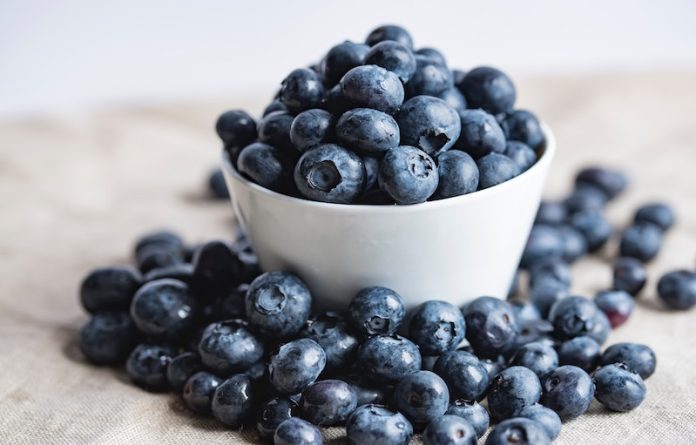
Have you ever heard of blueberries being good for your brain and heart?
Well, it turns out that there is evidence to support this idea!
Researchers at King’s College London and elsewhere conducted a study on 61 healthy older individuals, between the ages of 65 and 80.
The participants were divided into two groups: one group received 26 grams of freeze-dried wild blueberry powder (which contained 302 milligrams of anthocyanins) every day for 12 weeks, while the other group received a placebo (which contained 0 milligrams of anthocyanins).
Throughout the study, the researchers measured various things to see how the blueberry powder affected the participants.
They measured the participants’ cognitive function (how well they could think and remember things), their vascular function (how well their blood vessels were working), their arterial stiffness (how stiff their arteries were), their blood pressure, their cerebral blood flow (how much blood was flowing to their brain), their gut microbiome (the bacteria in their digestive system), and their blood parameters (things like glucose and cholesterol levels in their blood).
They also analyzed the participants’ plasma and urinary (poly)phenol metabolites (chemical compounds found in blueberries) using a special technique called micro-elution solid phase extraction coupled with LC-MS.
After 12 weeks, the researchers found some interesting results.
The participants who had been taking the blueberry powder had a better vascular function and lower blood pressure than the participants who had been taking the placebo.
They also had a better cognitive functions, specifically when it came to their ability to remember things and switch between tasks.
Additionally, the participants taking the blueberry powder had more (poly)phenol metabolites in their urine than the participants taking the placebo.
However, the blueberry powder did not seem to have any effect on the participants’ gut microbiome or cerebral blood flow.
So what does all of this mean? It means that eating blueberries (or taking blueberry powder) might be good for your heart and brain, especially as you get older.
The (poly)phenols found in blueberries might help to reduce the risk of cardiovascular disease (CVD) in older adults, while also improving their memory and thinking skills.
So if you’re looking for a healthy snack, consider reaching for some blueberries!
Benefits of other berries
Blueberries are not the only berries that offer health benefits. Many types of berries are considered “superfoods” due to their high levels of antioxidants, vitamins, and minerals.
Here are some of the benefits of other berries:
Strawberries: Strawberries are a good source of vitamin C, folate, and potassium. They also contain flavonoids, which are antioxidants that can help protect the body against cancer and heart disease.
Studies have shown that consuming strawberries may help improve cognitive function and reduce inflammation in the body.
Raspberries: Raspberries are high in fiber, vitamin C, and antioxidants. They contain ellagic acid, a compound that has been shown to have anti-cancer properties.
Raspberries may also help reduce inflammation, improve cardiovascular health, and protect against age-related cognitive decline.
Blackberries: Blackberries are rich in vitamins C and K, as well as antioxidants. They contain anthocyanins, compounds that can help reduce inflammation and protect against certain types of cancer.
Blackberries may also help improve brain function and reduce the risk of heart disease.
Cranberries: Cranberries are known for their ability to prevent and treat urinary tract infections. They are also high in antioxidants and vitamin C.
Cranberries may help improve cardiovascular health, reduce inflammation, and protect against certain types of cancer.
Acai berries: Acai berries are a good source of fiber, antioxidants, and healthy fats. They contain anthocyanins, which can help reduce inflammation and protect against cancer.
Acai berries may also help improve cholesterol levels, boost energy, and support weight loss.
Overall, adding a variety of berries to your diet can provide numerous health benefits. They are a delicious and nutritious way to support your overall health and well-being.
The research was published in The American Journal of Clinical Nutrition and was conducted by Eleanor Wood et al.
If you care about brain health, please read studies about how the Mediterranean diet could protect your brain health, and Vitamin B supplements could help reduce dementia risk.
For more information about brain health, please see recent studies that a high-fiber diet could help lower the dementia risk, and these antioxidants could help reduce dementia risk.
Copyright © 2023 Scientific Diet. All rights reserved.





